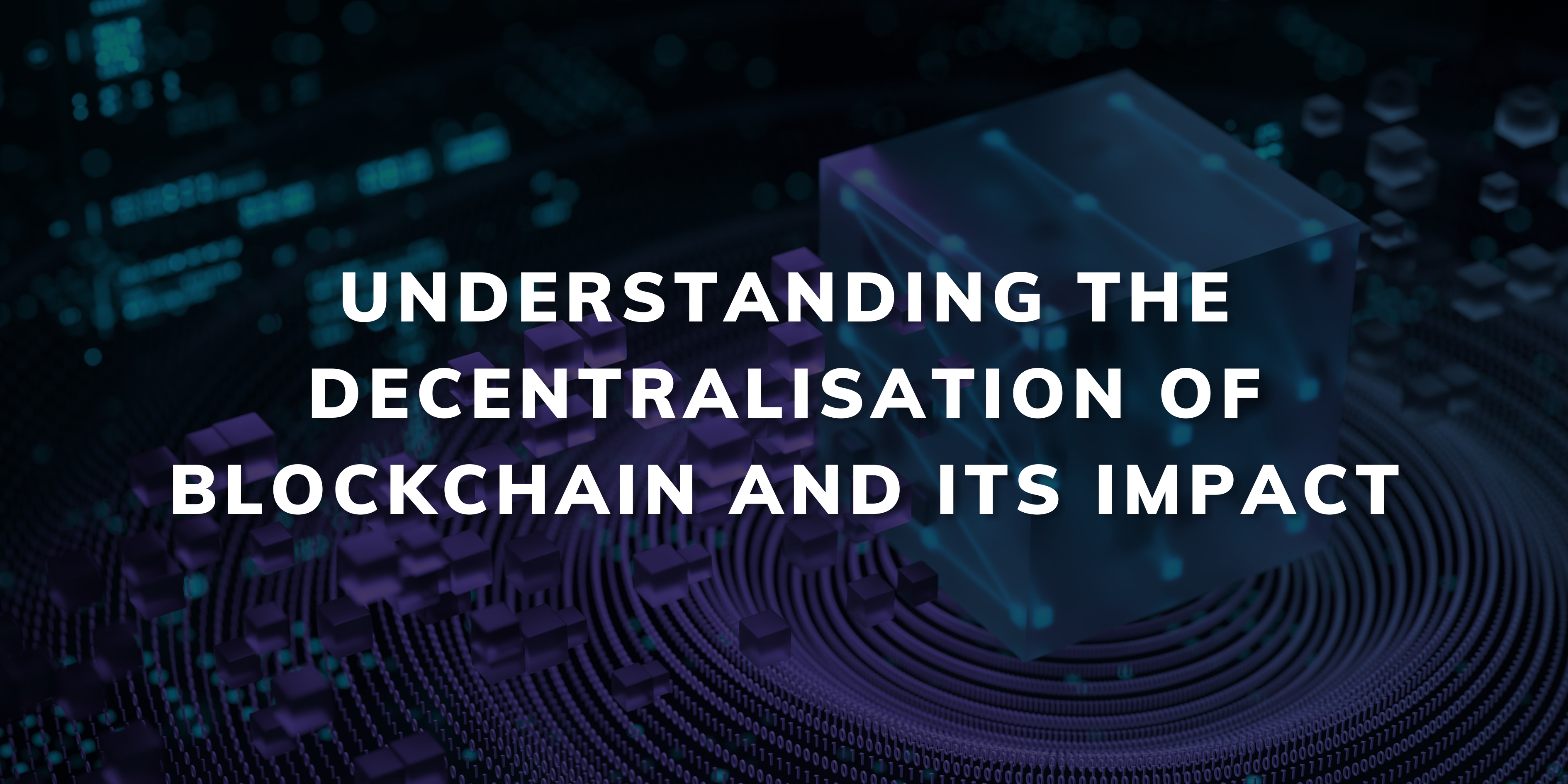
Understanding the Decentralisation of Blockchain and Its Impact
In recent years, blockchain technology has emerged as a revolutionary force, offering a new and innovative way to conduct transactions, store data, and manage digital assets. At the heart of blockchain’s appeal is its decentralisation—a feature that sets it apart from traditional centralised systems. Understanding decentralisation and its impact can seem daunting. This blog post aims to demystify these concepts, making them accessible to everyone.
Key Summary
- Decentralisation in Blockchain: Distributes control across many computers, reducing reliance on central authorities and enhancing transaction security.
- Key Features: Incorporates trust, transparency, and immutability directly into the system, making transactions secure, open, and permanent.
- Impacts: Transforms finance through peer-to-peer transactions, enhances security and privacy, and improves supply chain transparency and efficiency.
- Challenges: Faces issues with privacy, scalability, energy consumption, and regulatory compliance that must be addressed for broader adoption.
- Conclusion: Offers significant opportunities for industry transformation but requires overcoming technical and regulatory challenges to unlock its full potential.
What is Decentralisation?
In simple terms, decentralisation refers to the distribution of power and control away from a central authority. In the context of blockchain, it means that instead of having a single point of control (like a bank or government agency), the management and oversight of the blockchain are spread across a wide network of computers. These computers, known as nodes, work together to validate transactions and maintain the integrity of the blockchain.
Key Features of Decentralisation:
- Trust: With decentralisation, trust is built into the system rather than being dependent on a single entity. This is achieved through cryptographic techniques and consensus mechanisms that ensure transactions are secure and verifiable by anyone in the network.
- Transparency: All transactions on a blockchain are recorded on a public ledger, accessible to anyone. This transparency ensures that the system remains fair and accountable.
- Immutability: Once a transaction is recorded on the blockchain, it cannot be altered or deleted. This permanence provides a reliable and unforgeable record of transactions.
Impact of Decentralisation
The decentralisation of blockchain has far-reaching implications for various sectors, including finance, healthcare, supply chain management, and more. Let’s explore some of these impacts:
Disruption of Traditional Financial Systems
Blockchain technology is perhaps best known for its role in creating cryptocurrencies like Bitcoin. By enabling peer-to-peer transactions without the need for a central authority, blockchain is challenging the traditional banking system. It offers lower transaction fees, faster transfers, and increased accessibility, especially for those without access to conventional banking services.
Enhanced Security and Privacy
Decentralisation means that there is no central point of failure that can be exploited by hackers. The distributed nature of blockchain makes it significantly more secure against cyber attacks. Moreover, blockchain can provide a higher level of privacy for users, as transactions can be designed to reveal only the information necessary for the transaction, keeping other details private.
Increased Efficiency and Transparency in Supply Chains
Blockchain can track the movement of goods from the manufacturer to the end consumer, providing a transparent and tamper-proof record. This transparency helps reduce fraud, eliminate inefficiencies, and ensure that ethical practices are followed throughout the supply chain.
Challenges and Considerations
Decentralisation in blockchain enhances security and creates tamper-proof records by distributing data across many unknown nodes, raising privacy concerns. This widespread data distribution necessitates strong encryption and privacy safeguards. Challenges like scalability, energy consumption, and regulatory compliance also pose significant hurdles to blockchain’s broader adoption, highlighting the need for innovative solutions to balance the benefits of decentralisation with its complexities.
Conclusion
The decentralisation of blockchain offers groundbreaking opportunities to transform industries and empower individuals with increased transparency, security, and efficiency. However, realising these benefits requires navigating the complex landscape of scalability, regulatory compliance, privacy concerns, and the implications of widespread data distribution. As the technology evolves, ongoing innovation, coupled with thoughtful regulation and education, will be key to addressing these challenges and unlocking the full potential of blockchain.
Support Us!
Support us and make a real difference in data privacy and ownership. By becoming a supporter, you help shape a future where data is secure and truly belongs to its users. Whether you contribute financially or volunteer, your involvement is vital. Enjoy the supporter benefits and be part of the movement advocating for a future where you truly own your data and privacy. Act now—your participation is crucial!
